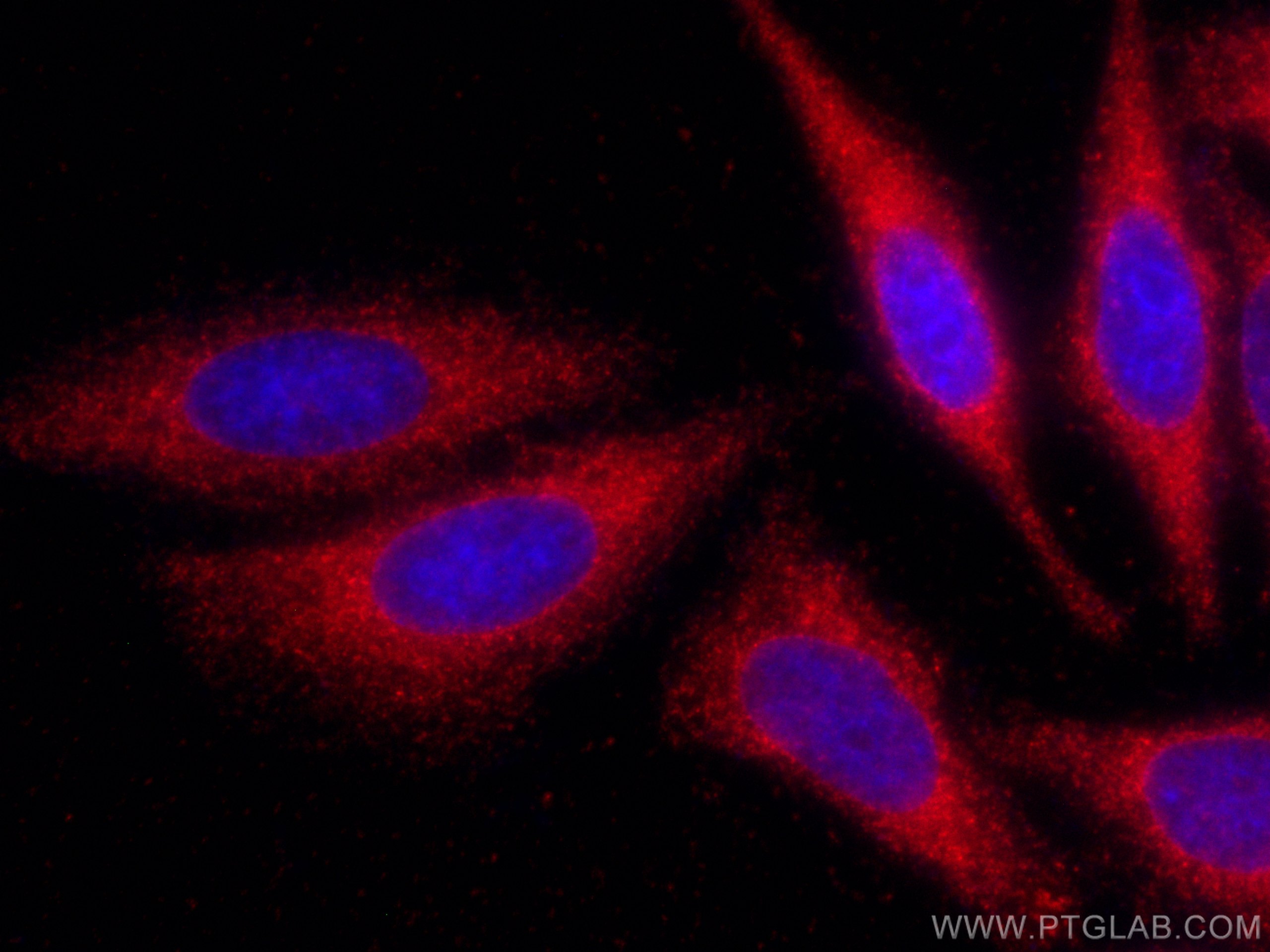SPTLC1 Monoklonaler Antikörper
SPTLC1 Monoklonal Antikörper für IF
Wirt / Isotyp
Maus / IgG1
Getestete Reaktivität
human, Maus, Ratte
Anwendung
IF
Konjugation
CoraLite®594 Fluorescent Dye
CloneNo.
2D11D7
Kat-Nr. : CL594-66899
Synonyme
Galerie der Validierungsdaten
Geprüfte Anwendungen
| Erfolgreiche Detektion in IF | HepG2-Zellen |
Empfohlene Verdünnung
| Anwendung | Verdünnung |
|---|---|
| Immunfluoreszenz (IF) | IF : 1:50-1:500 |
| Sample-dependent, check data in validation data gallery | |
Produktinformation
CL594-66899 bindet in IF SPTLC1 und zeigt Reaktivität mit human, Maus, Ratten
| Getestete Reaktivität | human, Maus, Ratte |
| Wirt / Isotyp | Maus / IgG1 |
| Klonalität | Monoklonal |
| Typ | Antikörper |
| Immunogen | SPTLC1 fusion protein Ag7876 |
| Vollständiger Name | serine palmitoyltransferase, long chain base subunit 1 |
| Berechnetes Molekulargewicht | 53 kDa |
| Beobachtetes Molekulargewicht | 55 kDa |
| GenBank-Zugangsnummer | BC007085 |
| Gene symbol | SPTLC1 |
| Gene ID (NCBI) | 10558 |
| Konjugation | CoraLite®594 Fluorescent Dye |
| Excitation/Emission maxima wavelengths | 588 nm / 604 nm |
| Form | Liquid |
| Reinigungsmethode | Protein-G-Reinigung |
| Lagerungspuffer | BS mit 50% Glyzerin, 0,05% Proclin300, 0,5% BSA, pH 7,3. |
| Lagerungsbedingungen | Bei -20°C lagern. Vor Licht schützen. Aliquotieren ist bei -20oC Lagerung nicht notwendig. 20ul Größen enthalten 0,1% BSA. |
Hintergrundinformationen
SPTLC1 is a subunit of serine palmitoyltransferase (SPT) which is the key enzyme in sphingolipid biosynthesis and is essential for embryogenesis and cell survival. Mutations in the SPTLC1 gene (C133W, C133Y, V144D, and G387A) were reported to be responsible for the development of an inherited sensory neuropathy (hereditary sensory neuropathy type I, HSN1).
Protokolle
| Produktspezifische Protokolle | |
|---|---|
| IF protocol for CL594 SPTLC1 antibody CL594-66899 | Protokoll herunterladen |
| Standard-Protokolle | |
|---|---|
| Klicken Sie hier, um unsere Standardprotokolle anzuzeigen |


